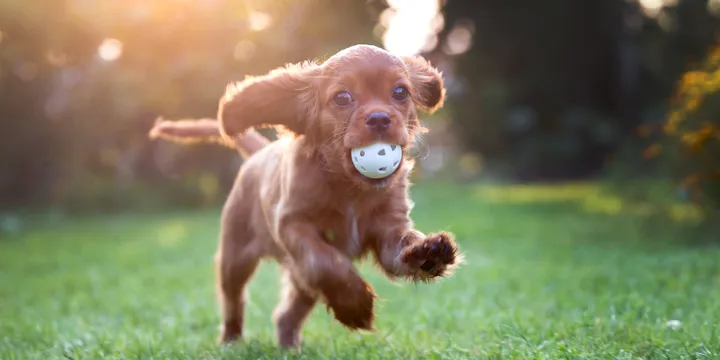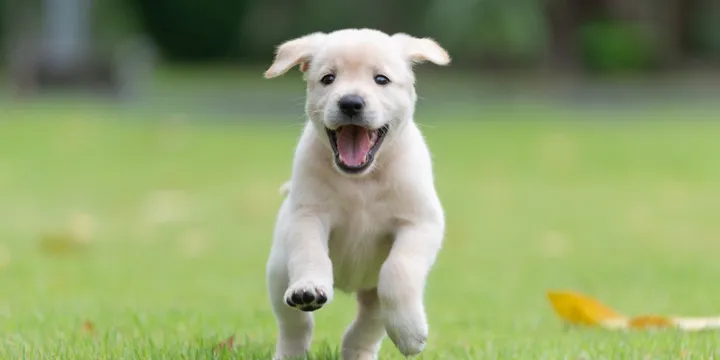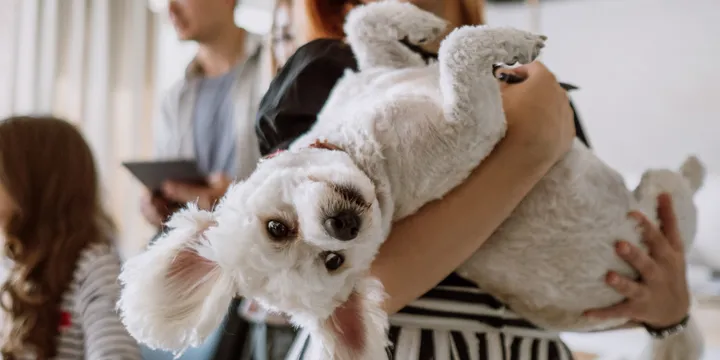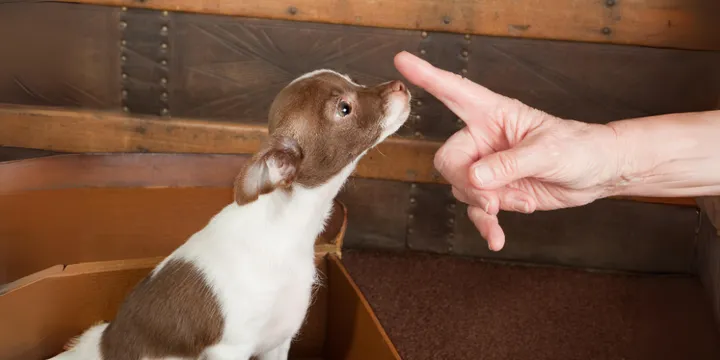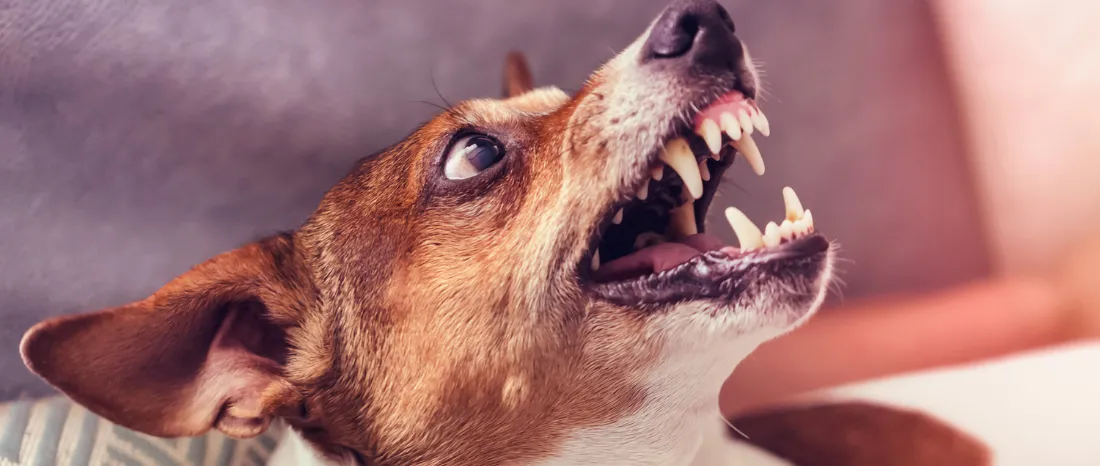
Puppy Play Tips to Limit Biting and Growling

Understanding Puppy Behavior
Excitement during Playtime
It can be surprising to hear how fierce puppies sound when they play, but don't worry! This growling is just a sign of their excitement and not aggression. Puppies may bite during play, and while it might seem intense, it's a normal part of being a healthy pup.
The Power of Puppy Bites
Puppies have strong bites, capable of crushing small bones. However, they learn early on not to use this strength on their playmates. This ability to control their bite pressure is called "bite inhibition" and starts developing while they play with their mother and siblings.
Teaching Gentle Play
Your job as a puppy owner is to continue teaching your furry friend to play gently with humans. It's essential to understand that, although puppy bites may hurt, they are not aggressive actions. This process takes time and patience, and it's crucial to guide your puppy gradually.
Guiding Your Puppy's Behavior
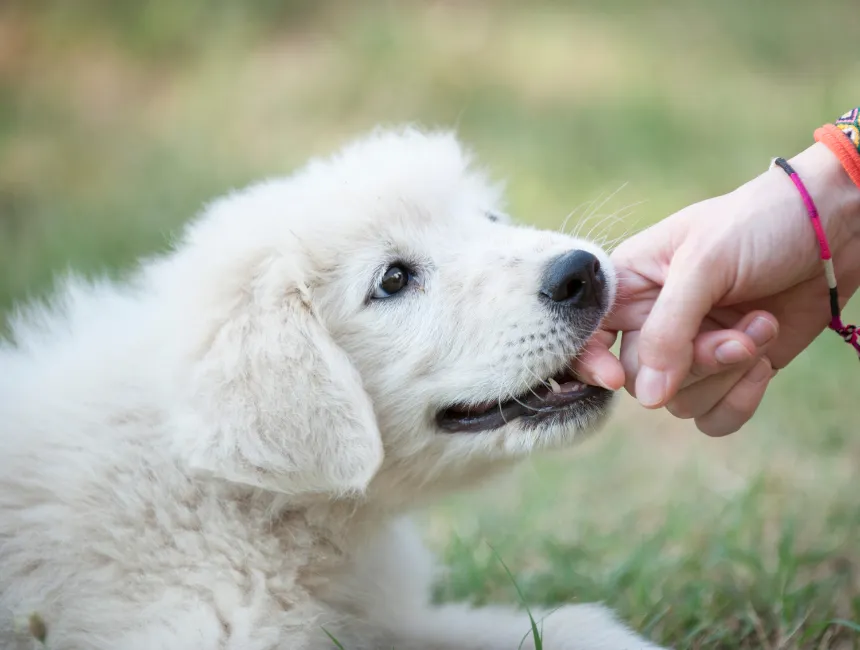
Withdrawing Attention
When your puppy bites too hard during play, provide feedback by saying "ouch" and immediately ending the game. This helps the puppy understand that biting too hard stops the fun. Redirect the biting to chew toys, teaching your puppy that toys are for biting, not fingers.
Redirection Technique
While playing, if your puppy bites too hard, redirect their attention to chew toys. Gradually, the puppy learns that gentle play continues, and rough play results in the end of the game.
Managing Overexcitement
Puppies tend to bite harder when they are overexcited. If your puppy gets too wound up, calmly hold him, remove him from the excitement, or place him in a crate to help him calm down. Managing overexcitement is crucial to prevent excessive biting.
Lines of Communication
Understanding and managing puppy behavior is vital for effective communication. Limiting overexcited playtime and focusing on various ways of interacting with your puppy will help build a strong bond and prevent excessive biting.
Nurturing a Well-Behaved Puppy
Anticipating Challenges
Owning a puppy comes with unique challenges, and one common concern is biting. While this behavior is typically a phase, it's essential to anticipate and address potential issues as your puppy grows.
Occasionally, puppies may exhibit growling or guarding behavior around their food. This is normal and can be resolved with proper guidance.
Effective Communication Tools
As your puppy grows, effective communication becomes increasingly crucial. Puppies may not instinctively grasp human expectations, so providing clear guidance is key. Explore tools and strategies that aid in communication, making training and obedience a positive experience for both you and your furry friend.
Building a Lasting Connection
Beyond managing biting behavior, fostering a lasting connection with your puppy involves understanding their needs and preferences. Pay attention to their cues, and gradually introduce training and playtime activities that align with their natural instincts.
Advanced Training and Socialization
Developing Good Behavior
As your puppy matures, it's time to focus on advanced training to reinforce good behavior. Building on the foundation laid in earlier stages, these techniques will help your puppy become a well-mannered and obedient companion.
Positive Reinforcement
Positive reinforcement is a powerful tool in shaping your puppy's behavior. Encourage good behavior by rewarding them with treats, praise, or toys. This approach creates a positive association with desired actions and strengthens the bond between you and your furry friend.
Socializing with Others
Socialization is crucial for a well-rounded and confident dog. Expose your puppy to various environments, people, and other animals. This helps them develop social skills, reduces fear of new experiences, and contributes to a friendly and adaptable demeanor.
Obedience Training
Basic commands like sit, stay, and come are fundamental for a well-behaved dog. Gradually introduce these commands using positive reinforcement techniques. Consistent practice and patience will result in a puppy that responds reliably to your cues.
Addressing Unwanted Behaviors
As your puppy grows, you may encounter unwanted behaviors. Whether it's excessive barking, digging, or jumping, understanding the root cause is essential for effective correction. Utilize positive reinforcement to redirect their focus and encourage alternative behaviors.
Building a Trusting Relationship
Trust is the foundation of a strong bond between you and your puppy. Maintain a consistent and loving approach to training, ensuring your puppy feels secure and understood. This trust forms the basis for a lifelong companionship.
A Lifetime of Companionship
Embracing Lifelong Wellness
Ensuring your puppy's well-being extends beyond basic training. Explore practices for maintaining their health, including regular veterinary check-ups, a balanced diet, and proper exercise. A healthy dog is a happy companion.
Adapting to Changing Needs
As your puppy grows into adulthood, their needs evolve. Understand the changes in behavior, energy levels, and dietary requirements. Adapt your care routine accordingly to provide the best support for your dog's physical and mental well-being.
Addressing Behavioral Changes
Dogs, like humans, undergo behavioral changes throughout their lives. Stay attuned to shifts in temperament, addressing any sudden shifts or problematic behaviors. Consistent positive reinforcement and patience remain valuable tools for fostering a positive environment.
Tailoring Activities to Age
Different life stages require varied activities. Tailor exercise routines to match your dog's age and energy levels. From playful puppyhood to the more relaxed senior years, adapt activities to keep your dog engaged and content.
Special Considerations for Seniors
In the later stages of life, your dog may face unique challenges. Learn about common senior dog issues, such as arthritis or reduced mobility, and explore ways to provide comfort and care tailored to their specific needs.
Cherishing Every Moment
The bond between you and your dog deepens over time. Cherish the moments of joy, playfulness, and companionship. Whether it's a wagging tail greeting you at the door or shared quiet moments, savor the richness of the lifelong connection you've built.
About the Author

Kelly was born and raised in the city of Worcester, MA, and has always had a great love for dogs. Her parents, now retired, both worked as veterinarians when she was growing up, which sparked her interest in animal care early on.

